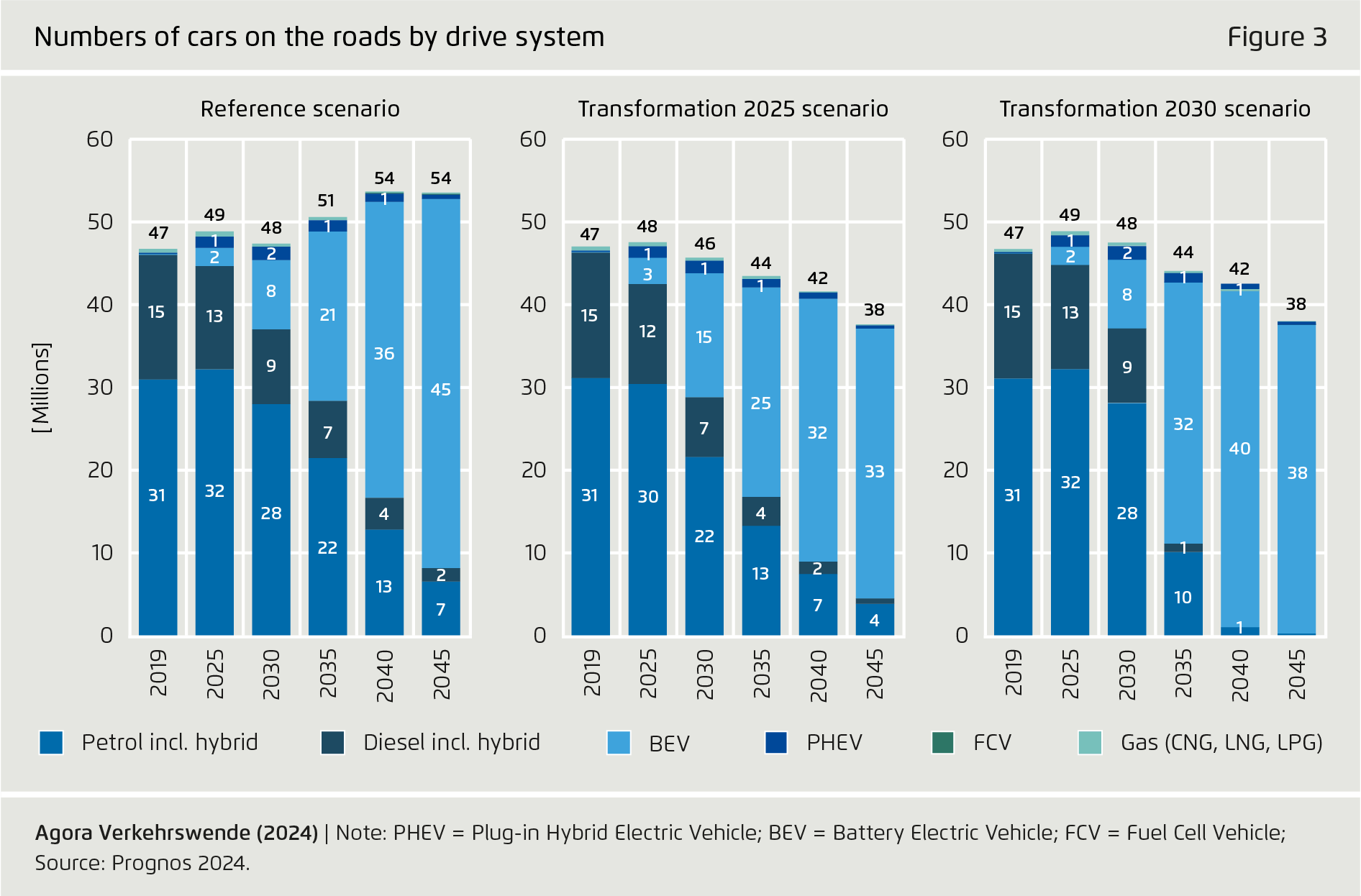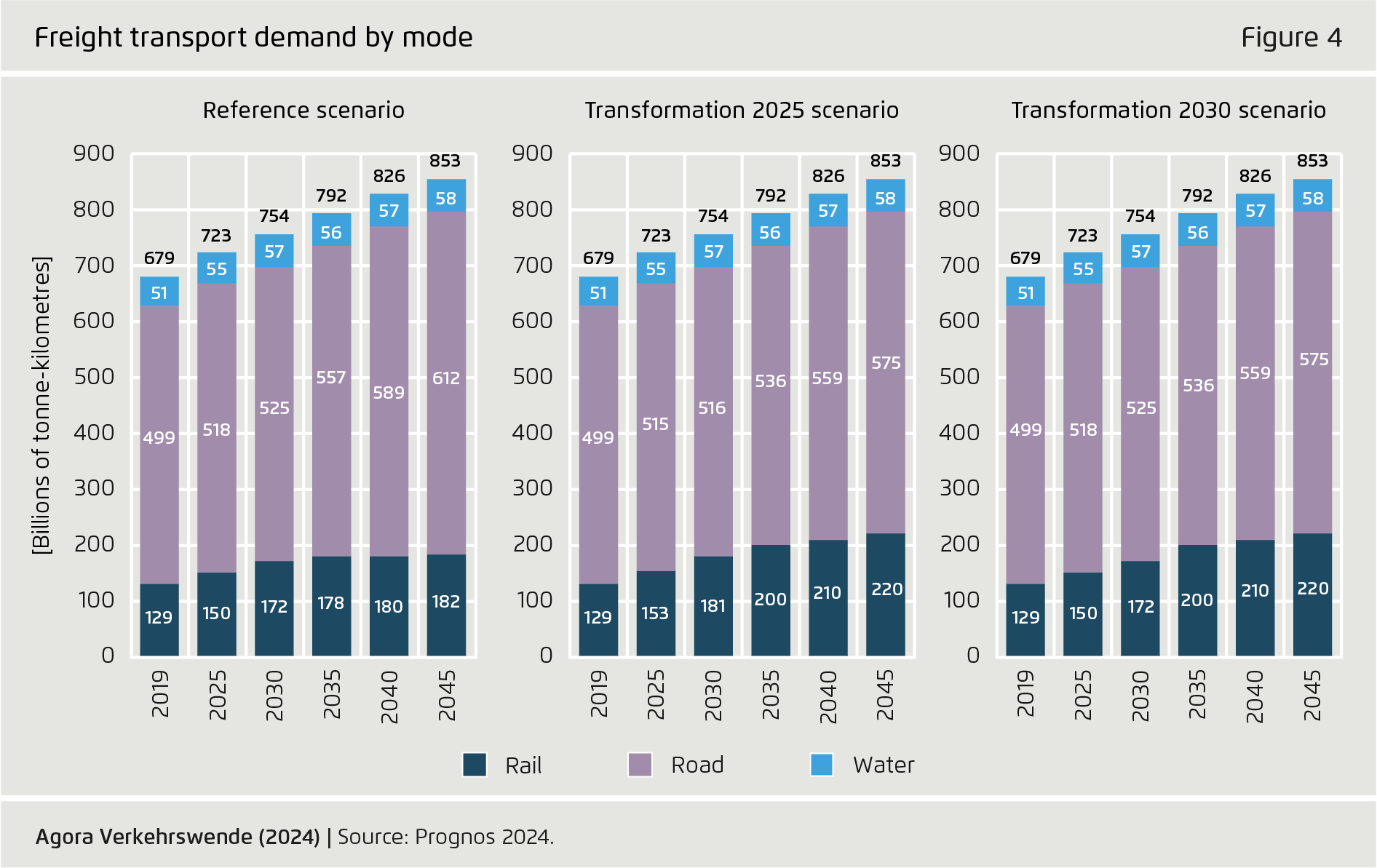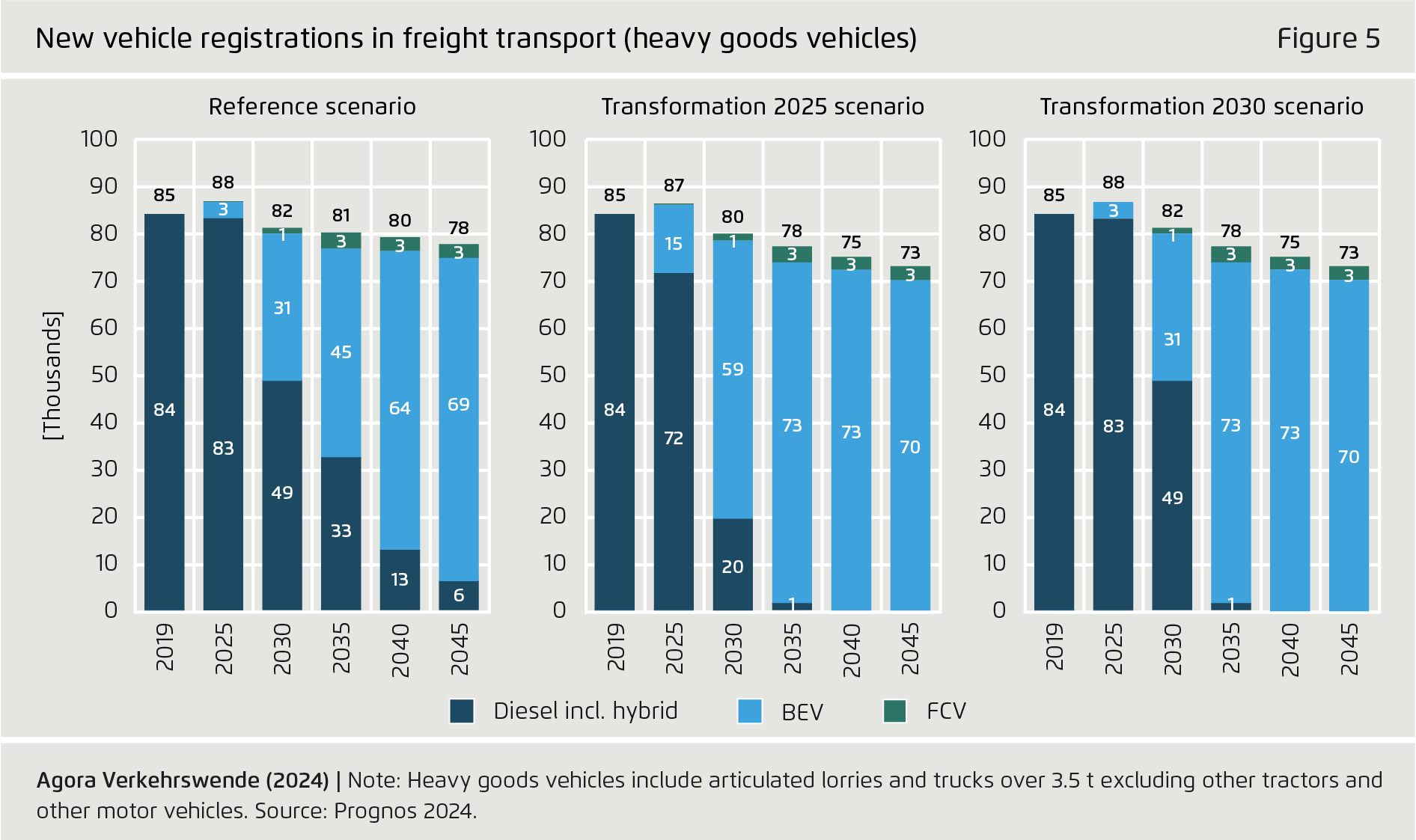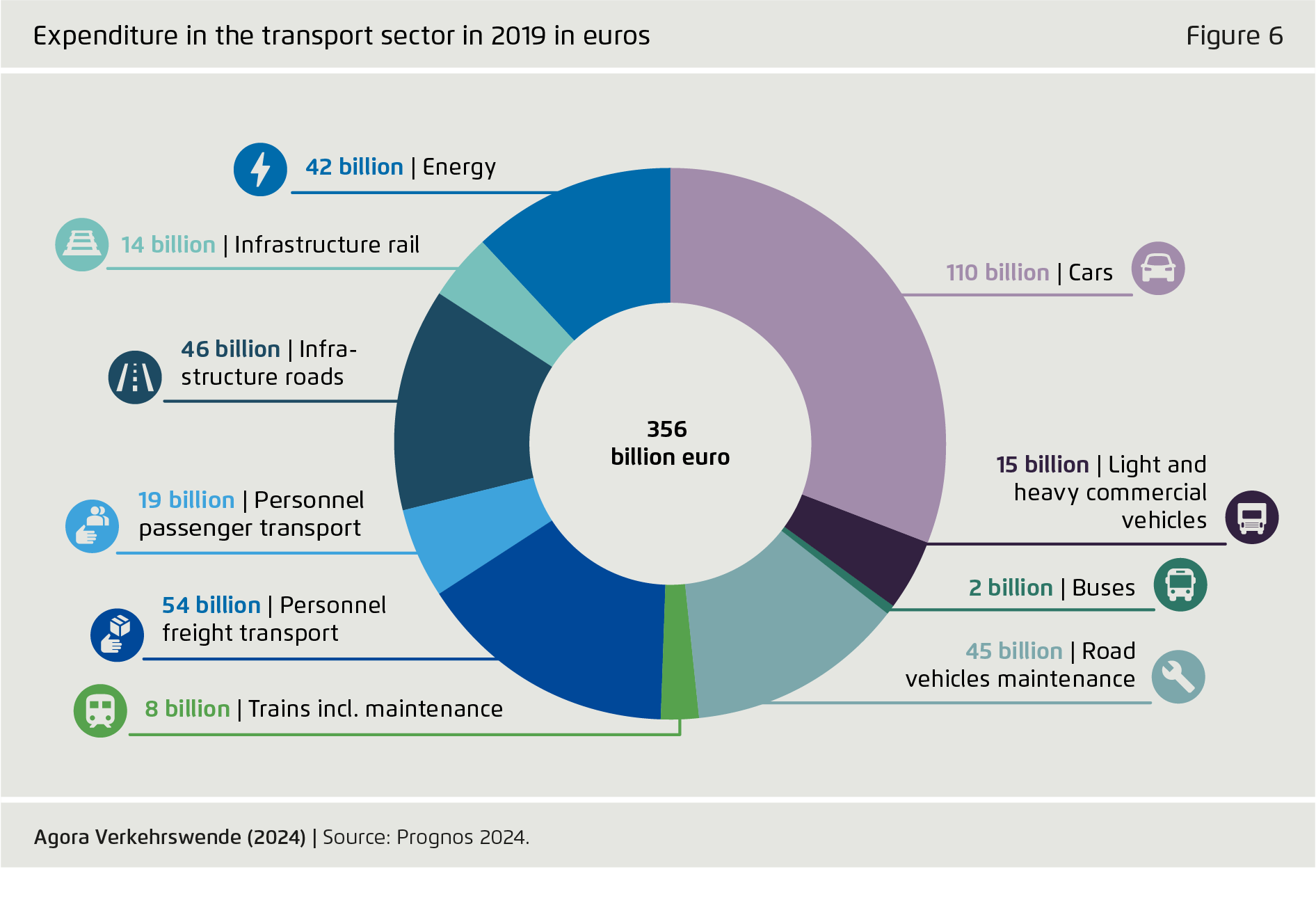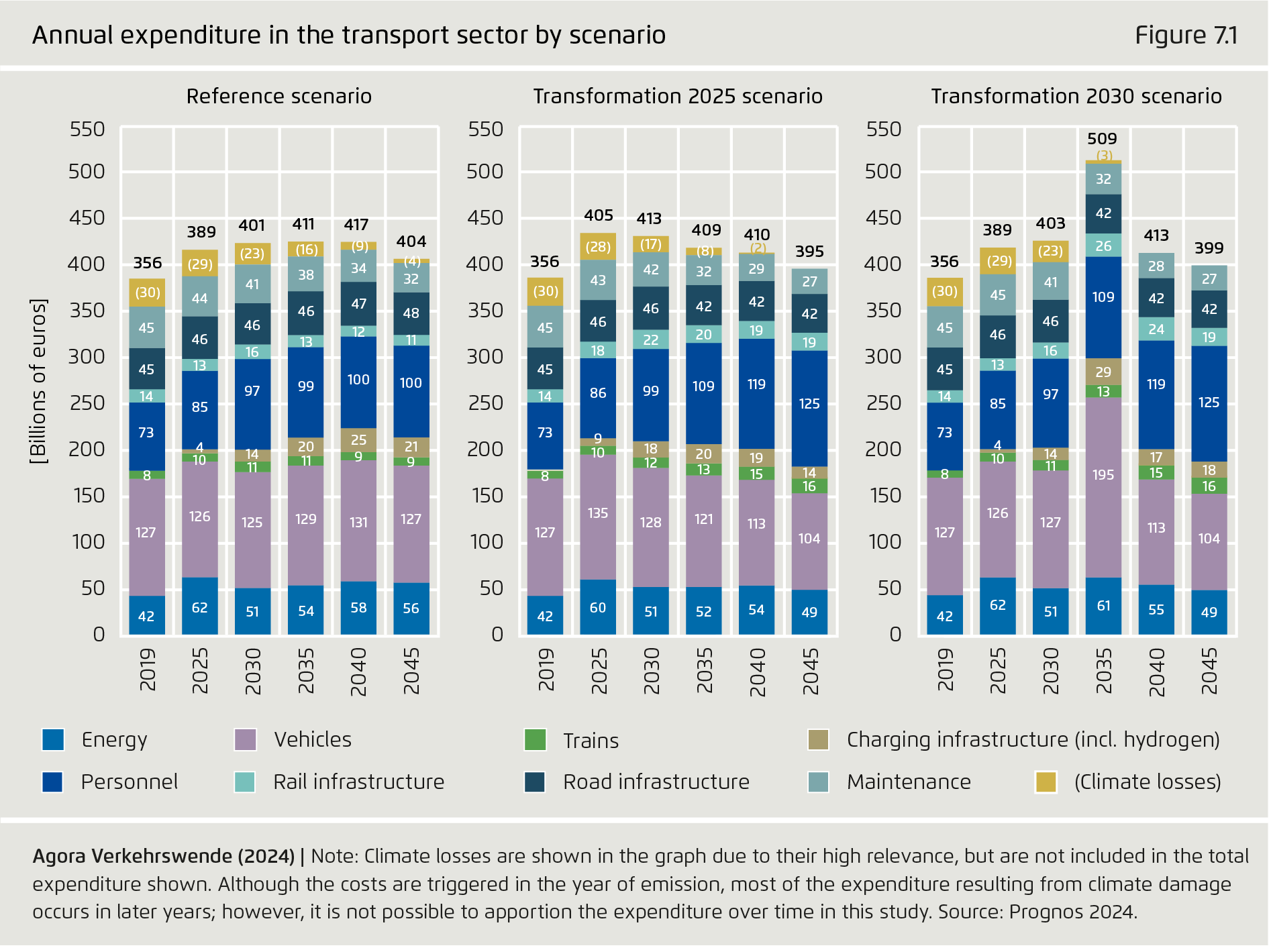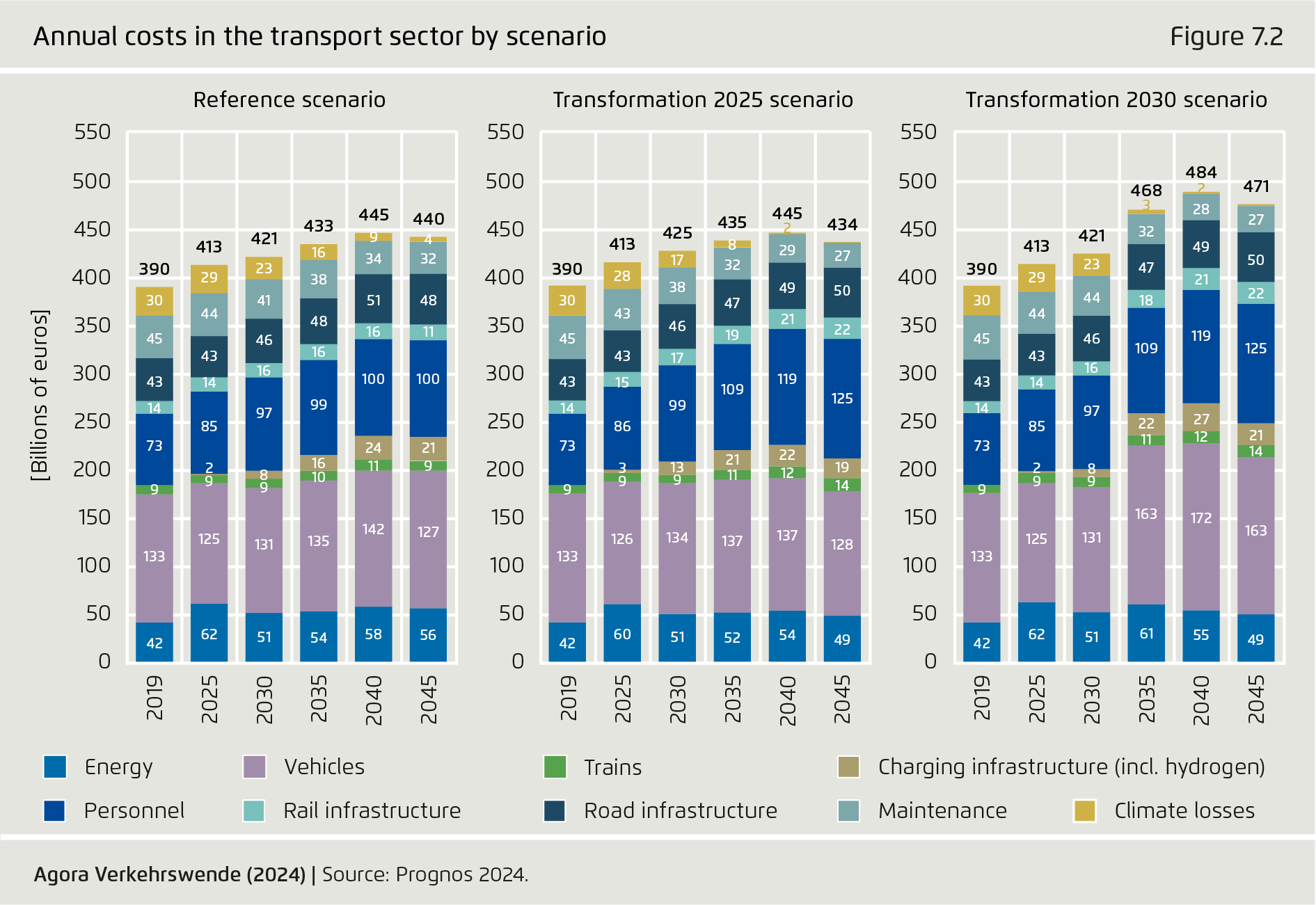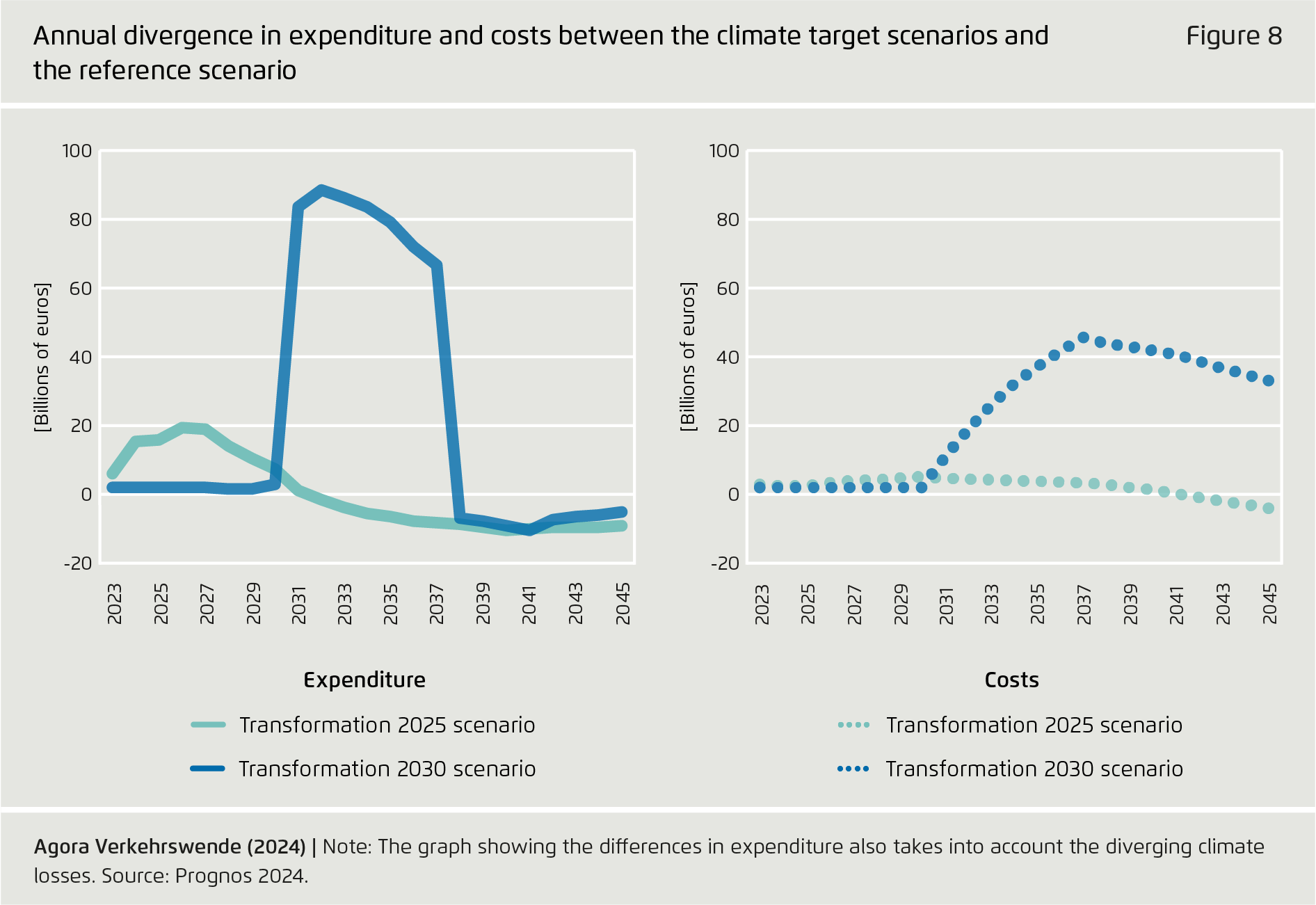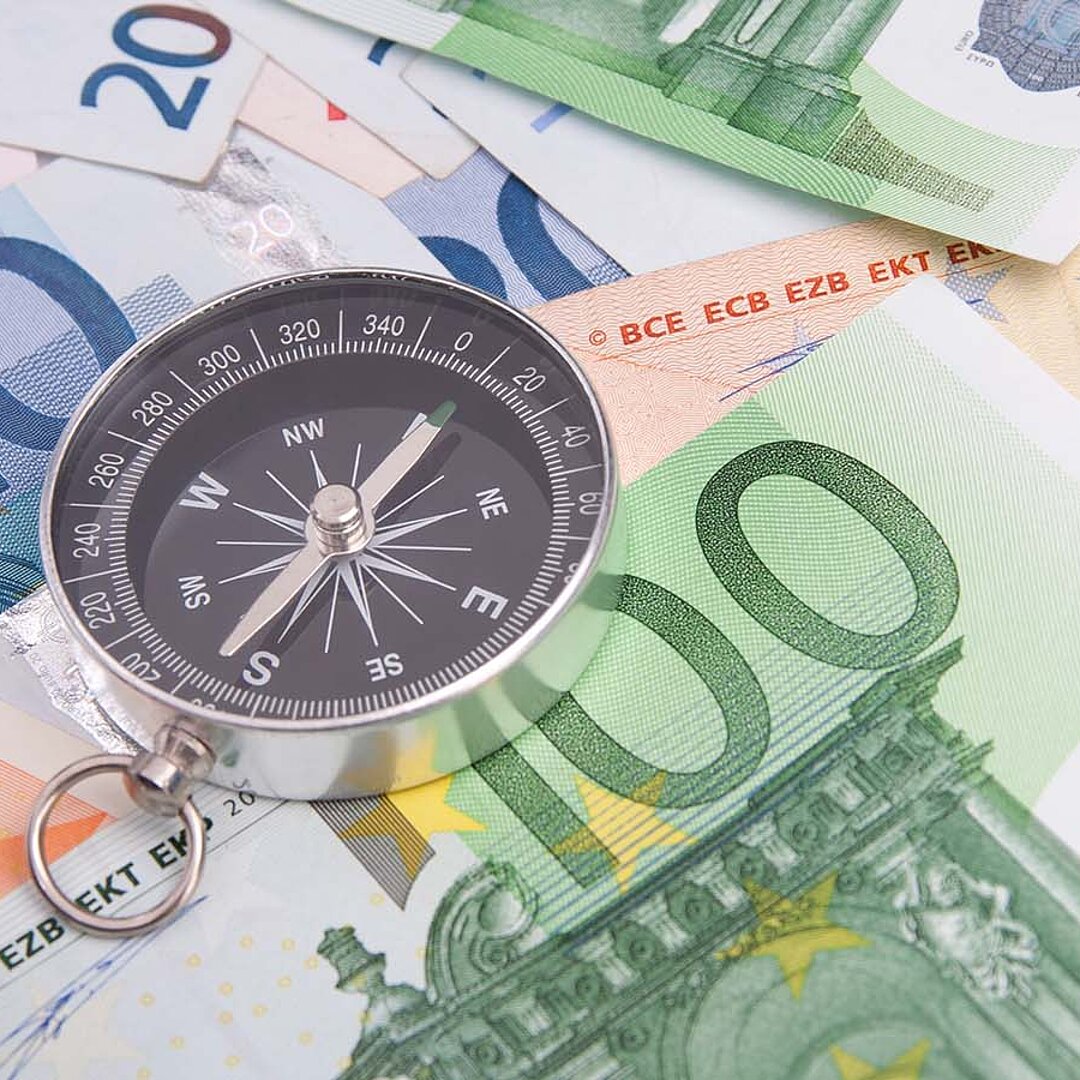-
It pays to act quickly:
With swift and decisive action, Germany can become climate-neutral in the transport sector by 2045 at the latest and, when compared to a continuation of the current policy without new measures (reference scenario), can save cumulatively around 590 million tonnes of CO₂. This can be achieved without additional economic costs and while maintaining overall mobility levels in full (Transformation 2025 target scenario).
-
Political hesitancy comes at a price:
Delays in the transport transformation will lead either to missing the climate targets or, if climate neutrality is still to be achieved by 2045, to higher costs. Structural disruption and the devaluation of investments will then be almost inevitable. If the change of course in climate policy in the transport sector does not begin until 2030 (Transformation 2030 target scenario), there is a risk of additional costs of around five percent or 500 billion euros by 2045 compared to the Transformation 2025 target scenario as well as to the reference scenario.
-
Early investment yields long-term benefits:
Compared to the reference scenario, which does not envisage any new measures and does not lead to the achievement of climate neutrality by 2045, the scenario of early transport transformation action (Transformation 2025 target scenario) initially involves higher investments. These go in particular towards expanding public transport capacity, purchasing more climate-friendly vehicles and developing the charging infrastructure. Savings will then be achieved in later years – primarily as a result of more efficient and reduced car traffic. In the longterm, the savings even outweigh the initial additional investment.
-
Securing long-term financing:
Building up the necessary public transport infrastructure and capacity requires sufficient long-term funding for public investment. For private investment – especially in more climate-friendly vehicles and their energy supply – citizens and companies need framework conditions that are geared towards climate protection and that provide planning certainty.
-
Creating added value through averting damage:
Quite apart from the direct financial expenditures and savings within the transport system, the earlier and more consistent the action taken, the lower will be the costs to society of the damage done to the climate, the environment and public health. In addition, costs running into billions of euros for compensation payments under European climate legislation can be averted in this way.
This content is also available in: German
The transport transformation as value added
Why it makes economic sense to invest now in reducing greenhouse gas emissions from the German transport sector

Preface
In this study, in collaboration with the economic research institute Prognos, we investigated how the economic costs and investment requirements in Germany's transport sector might develop over the next twenty years – paying particular attention to the implications of the transformation to climate neutrality. We have summarised the most important findings in this report; the full scientific research and analysis on which it is based can be found in the Prognos expert report.
The overall conclusion is promising: Germany's transport sector can already contribute its fair share to climate protection over the next few years – without any reduction in mobility and without additional costs when compared to a scenario in which no additional climate protection measures are taken. Following increased initial investment expenditure, an ambitious climate protection policy can lead to overall economic savings after just a few years, even if only the direct costs of climate damage are taken into account from among the various externalities. However, in order to realise this added value, policymakers must act quickly and decisively. Political hesitancy has a price. The price can be measured either in money or in greenhouse gases, with all their associated risks. Greater investment in the future is needed initially, but not more money in total. Above all, more political will is required.
Key findings
Bibliographical data
Downloads
-
pdf 2 MB
The transport transformation as value added
Why it makes economic sense to invest now in reducing greenhouse gas emissions from the German transport sector
All figures in this publication
GHG emissions in the transport sector under the different scenarios
From The transport transformation as value added on page 1
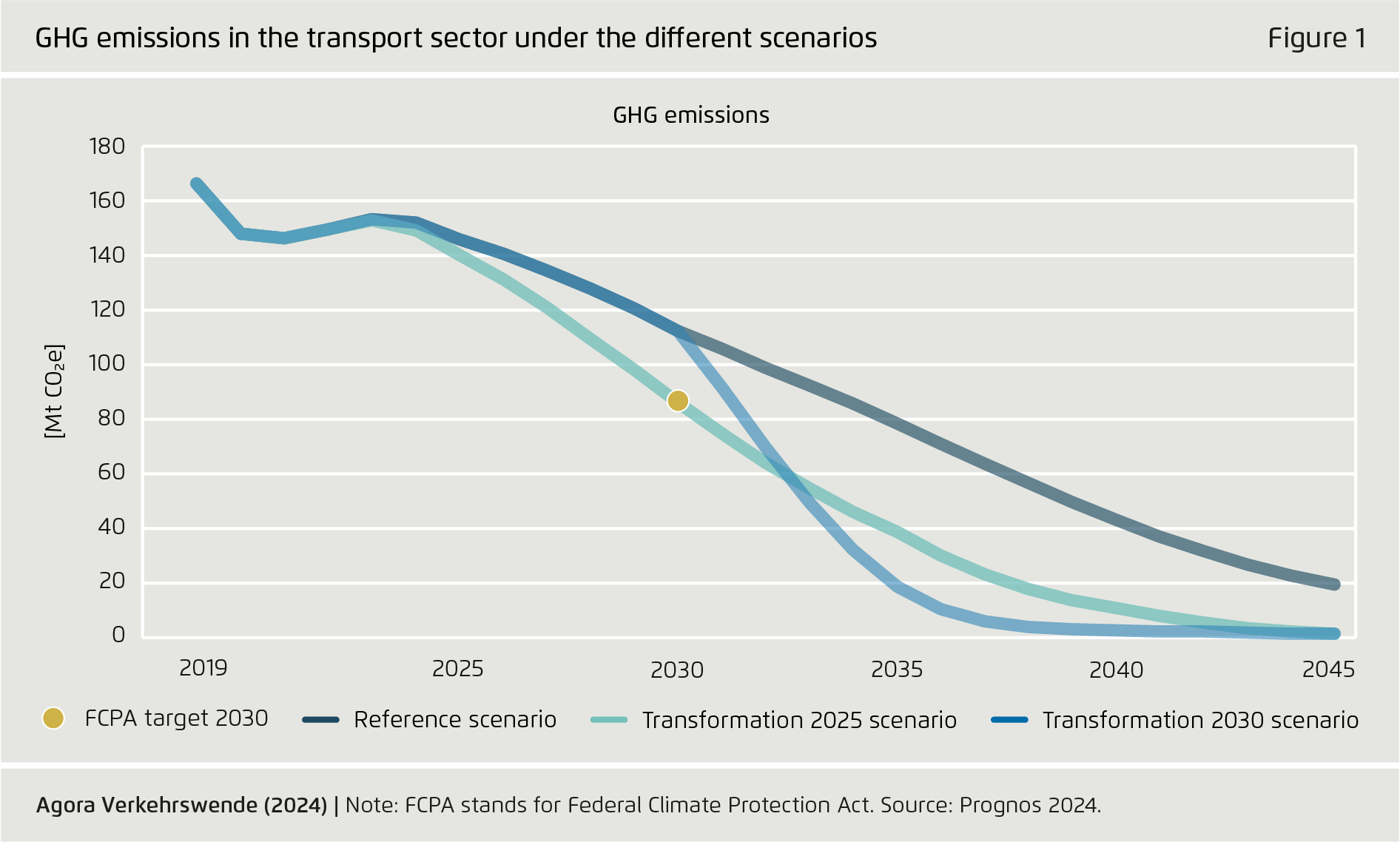
Demand for passenger transport by mode
From The transport transformation as value added on page 2


